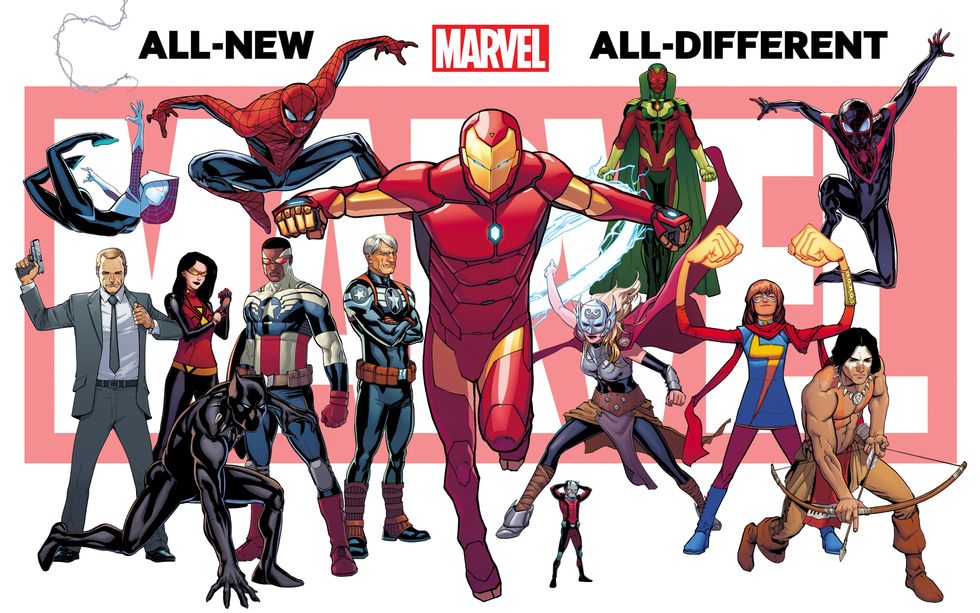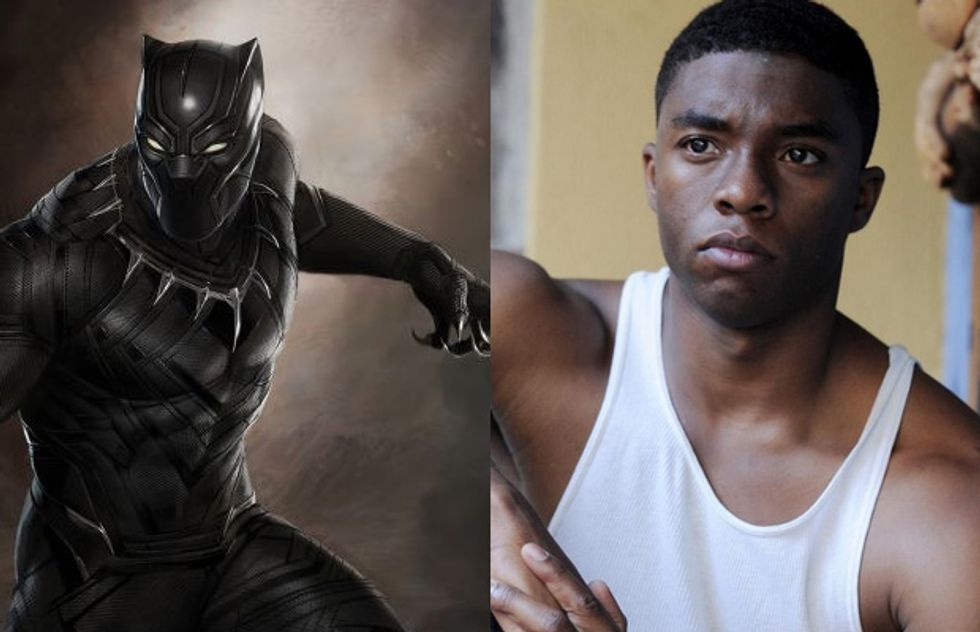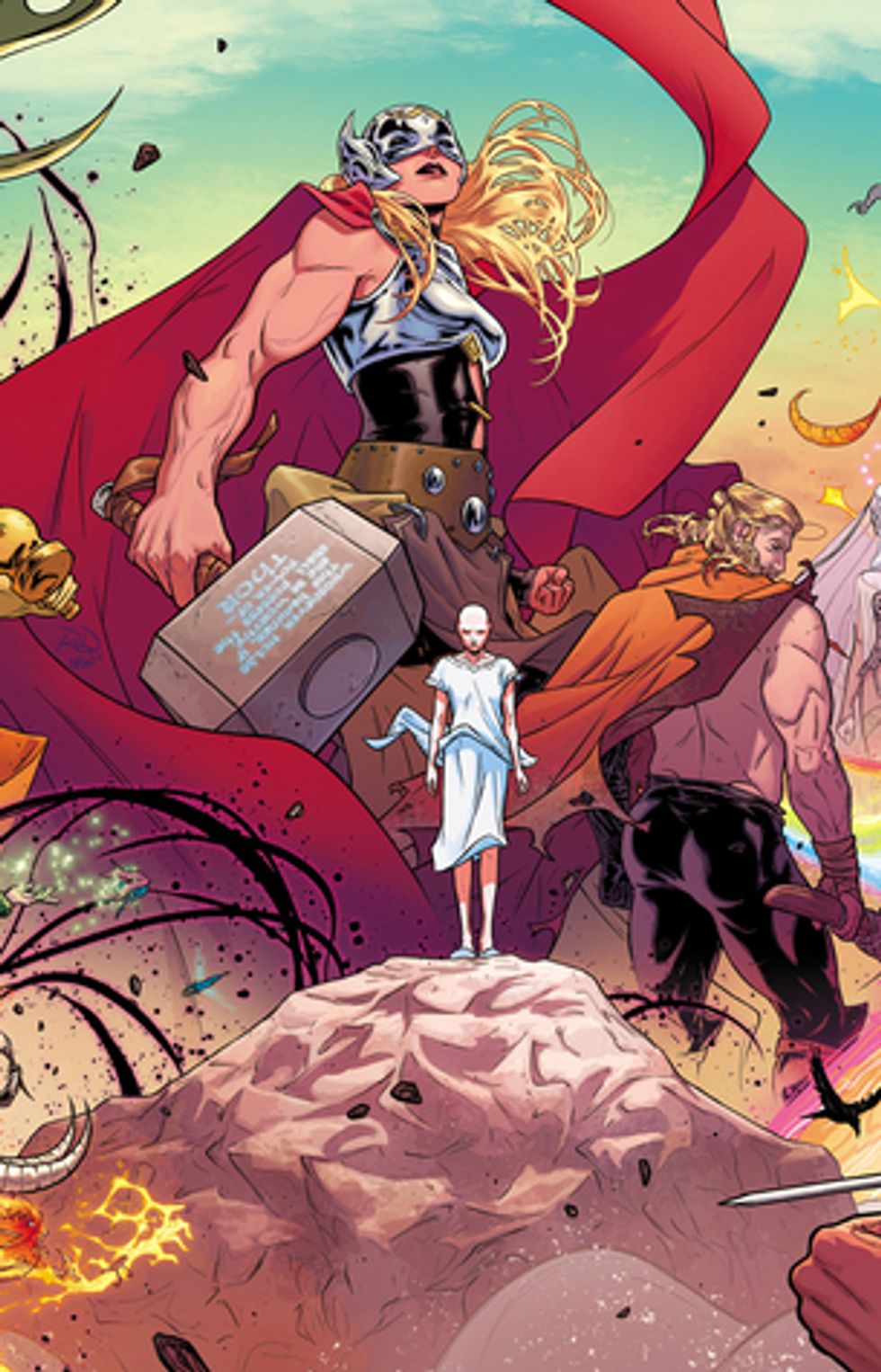Since the resurgence of the comic books and their movie counterparts, companies have dared to change the race or even gender of characters that have had decades of established history, Marvel being the most infamous for doing so. They do this in of two ways, or both. They sometimes change the characters in the canon comic books, sometimes they do so in movies and television, and occasionally they do so in both. It’s important to delve into all the aspects of this because there is a fine line between acceptable and a blatant scheme to get headlines and profit.
Let’s begin with changing race exclusively in movies and television. A good example of this was in the most recent Fantastic Four movie from Fox where Michael B. Jordan played legendary superhero Johnny Storm, also known as the Human Torch. There was much outcry about this, but quite frankly I did not see the issue. Here is the truth: race is only an issue in movies and television when the character’s race is essential to whom the character is; otherwise, it is best to choose any actor that can best perform the role. Let’s take the example of Black Panther, who was played by Chadwick Boseman. It was mandatory to ensure that the character was played by an African-American actor because Black Panther is the king of a fictional African country called Wakanda in the source material- his comics. To allow Black Panther to be played by an Asian, Caucasian, Latino etc. actor would be an injustice to who the character is and what he represents. The same can be said for Captain America. The character’s history is rooted in being an Irish immigrant that becomes America’s greatest hero. However, nothing about Jonny Storm’s character is influenced by him being Caucasian. His race was the result of being created in an era where Caucasian was the default, and because of that changing his race has no impact on the character. It is more than okay to give to the role to whoever is most capable, and adapting the story into something more modern and representative of our times.
When it comes to the actual comic books, the original material that truly represents the characters, it is a bit more complicated. Warning, there will be spoilers ahead. The most popular examples where characters have been changed include Thor being replaced by a woman named Jane Foster, Iron Man being replaced by a young African-American woman named Riri Williams, and the title of Ms. Marvel being inherited by a young Muslim Pakistani- American girl named Kamala Khan. One note that should be mentioned beforehand is that even though American comics do not sell anywhere near as much as people expect them to (selling a few thousand is considered a moderate success), publishers like Marvel get a huge spike in sales when they release a new comic series beginning at issue #1. What’s more is that they make headlines across the country on media that normally does not discuss comic books once they announce a character is being replaced or something as wild as Captain America being a member of H.Y.D.R.A. Clearly publishers have much to benefit from changing characters for better or worse.
That being said, changing characters is acceptable under some circumstances. First, the character in the books should not change race just for the sake of diversity. This is different from the movies which are an adaption of the source material. To have a character that has historically been Caucasian one month ago and suddenly alter their race and history by the next month’s issue is irresponsible, a lazy method of promoting diversity and a betrayal to readers who have been fans for months, years, even decades. An established character must remain who they are in the canon book without argument.
However, the three examples I mentioned previously are not that. They are different people taking the mantles of established characters. Thor’s replacement with Jane Foster is an excellent example of how to properly change the status queue, while telling a meaningful story. This is a change that has stuck despite a lot criticism and I am glad it did. Unlike a lot of Marvel’s other mistakes, Jane’s ability to wield the hammer despite her terminal cancer getting progressively worse through its use made this an emotional story that countless could relate to, yet the epic nature of the series never quit and Thor Odinson, the original, his presence from the series never truly faded. It became a story that questioned what it meant to be truly worthy, and it has been a vital era in the long tale that writer Jason Aaron has in store for us. I have similar praise for Kamala Khan, the new Ms. Marvel. Her introduction was a smooth transition after the original Ms. Marvel took the mantle of Captain Marvel, and the spirit and adventure that Kamala brings makes her truly a lovable, genuine and original character. I cannot say the same for Riri Williams.
To be entirely fair, I do not read the Iron Man comics, but Riri was introduced shortly after a time where many legacy characters were being replaced and Marvel made countless headlines. Her role as a replacement for Tony Stark, the original Iron Man, all while being an African-American woman (as diverse and different from Tony Stark as you can get) was clearly an attempt to get a headline and sell comics. It was even written by Brian Michael Bendis, a popular writer that few readers enjoy as of late and is renowned for making these types of decisions. For those that don’t know, the upcoming Marvel event will actual involve the return of Tony Stark, making her journey short lived. Riri is the exemplar of how to frustrate your readers and make profit at the same time. Her mark on the history of Iron Man is miniscule, but the short term profits were surely worth it for Marvel and it was disguised as an attempt to promote diversity in comics.
Diversity is essential in both movies, television and comics books, especially considering the new era we live in and the impact it has on our culture. How publishers choose to promote that is up to them, but there are boundaries. When adapting source material to film or television, there’s leniency because it is an adaption, but changes in characters should only be allowed to the extent that their true essence and history are not affected in a detrimental way. When it comes to comic books, characters should never undergo sudden race/gender replacements. If a new diverse character takes up the mantle of an established popular character, it should be meaningful and true to the story, not just an attempt to make a quick profit and boost popularity. And lastly, the best option publishers have is to slowly create new diverse characters that are capable of being successful without the help of a legacy hero’s title. This will always be a sensitive topic and people will disagree, but I am sure we can all agree that the end goal is to tell a genuine story. I understand the need to expand diversity in comics, but never alter decades of hard work for that reason or relinquish what makes our favorite heroes unique. Establish new chapters in your publisher’s line of work and tell stories that affect people- those are the thing that will keep readers happy and expand the lore in an earnest way.




















